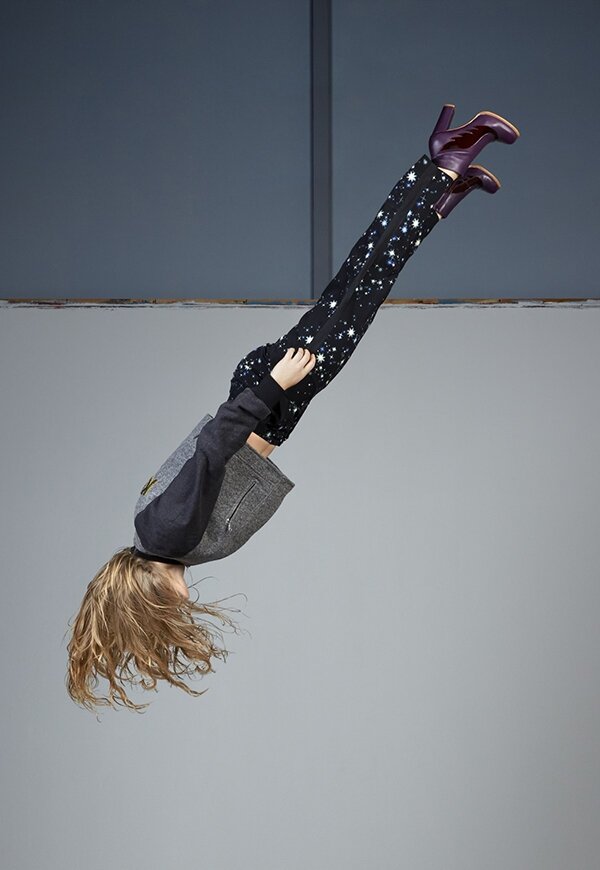The future will be here sooner than we think - Covid19 implications on brands and consumer behaviour
The future will be here sooner than we think (written in May 2020, published in Finnish in Kauppalehti Magazine on 9.4 2020)
The rapid spread of COVID-19 globally has created a volatile and unpredictable environment for economies, businesses and society. We are currently in the middle of a global behavioural change – everything has changed, is changing and will be changed. Our understanding of value concepts and trusted rules regarding consumers became outdated overnight. As our society establishes completely new behaviours as a reaction to the unprecedented circumstances, notions like “business as usual” and “we’ve always done it like this” become quickly irrelevant.
What will the post-COVID-19 era mean for brands and marketers? We don’t know. What we know for sure is that the pandemic will end. Between now and then, there are only a few other certainties. Your customer persona has changed and will never be the same again. Pre-COVID-19 marketing strategies are outdated. Brands who understand that they must adjust to their customers’ changed behaviour patterns and new needs will become more relevant and more effective than the rest.
Consumer behaviour is adapting fast as people are adjusting to new regulations and re-evaluating values. In this situation, only consumers will determine what is an essential product. After stocking up hygiene products and food, the next phase of COVID-19-driven consumer demand is on the rise: for example, "puzzles for adults" makes it into the top 10 most frequented search terms on Amazon.
Consumers expect brands to help. As more and more realise the impact and gravity of the virus, consumers want brands to help communities, donate supplies and money and help with the crisis. As we are still in the acute outbreak period and haven’t yet entered the recovery stage, uncertainty is a key characteristic for this phase, with a large effect on consumer confidence. When no one has a clear understanding of how things will evolve, people don’t know how to react and who to trust. According to the Edelman Trust barometer, people don’t trust societal leaders to address the challenges – instead, businesses are seen as leaders in the COVID-19 battle. There is a recognisable lack of trust in governments and institutions, whereas communities play a crucial role: most trust the people in their local community the most, followed by most having faith in scientists. And while people distrust governments and institutions, the social role of brands increases. As such, the acute outbreak phase is not a time for brands to stay still and withdraw, but instead to consider how they can actively and meaningfully offer their support and show resilience and reassurance to people. Based on a multimarket research by Global Web Index, consumers are expecting brands to take responsibility and step in to lead the fight against coronavirus. These expectations go way beyond marketing: it’s time to step in and serve the public.
Although businesses are rated higher than governments in many markets, consumers feel that local businesses are being more effective in their actions than larger corporations. The local connection with consumers is important, and the local partners have the ability to be nimbler in their actions. Some examples are Finnish breweries such as Helsinki Distillery and Kyrö Distillery who started producing hand sanitisers. Similarly to the Scottish brewer Brewdog, these Finnish companies have prioritised serving health service clients first and did not add coronavirus-related surcharges to the price. What larger businesses can consider from these insights is to aim to create a level of closeness and familiarity with consumers that local businesses have.
To conclude, responses to the circumstances are not enough, actions taken to help is what counts. The worst thing brands can do is to cash in on the crisis, applying tactics focusing on sustaining short term sales, while failing to adapt their behaviours to the current reality and being ignorant of changed consumer needs. Instead of disappearing, smart actionable and hyper-relevant brand behaviour is essential.
Take note that how businesses can contribute depends on each case. Not all businesses can produce hand sanitisers or have huge resources to utilise. The variety of approaches is endless, and it is all about how brands can serve these new consumer needs. People will be faced with social isolation, insecurity, financial challenges, personal wellbeing and lack of regular entertainment, and they have to find new habits and routines to cope with the situation. How brands react in these critical times will define them for years to come. Some will be remembered, and some may end up on the wrong side of history. Some businesses will go down, and many businesses will grow and appear out of the blue. There will be new companies, services and collaborations. Are you ready to collaborate with your competitors?
It all comes down to recognising the counterbalance. The virus threatens our lungs but improving air quality. These are times when people are isolated but also connected. Times when we recognise new ways of working by setting limits to it. The world has never before felt so physically apart, yet at the same time more connected and united. The global crisis demolishes barriers and unites people. However, periodic disappointments and difficulties should be expected. Social distancing is emotionally draining and challenging for many people and families. Let’s not forget that domestic violence victims are at risk during social distancing. We are experiencing a humanitarian challenge where nations, economies, workforces, relationships and mental health are under threat. Discovery and creativity are needed more than ever, and resilience, patience, tolerance, empathy and self-reflection will be critical in overcoming the crisis.
The future will be here sooner than we think, and all industries need to innovate at a much higher speed than ever before.
Key takeaways for brands
1 —Counting on your best practices is irrelevant
2 —Your audience has changed and will never be the same
3 —Connect to the new hierarchy of needs
4 —Increase your social role
5 —Analyse society’s behavioural change
6 —Prepare for the future now



